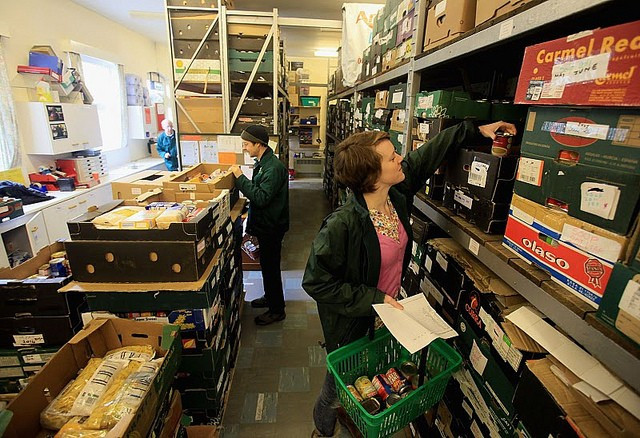Four out of five foodbank users go hungry many times a year, warns report
The largest UK survey into foodbank use paints a picture of people vulnerable to 'income shocks' from rent or food price rises.

Four out of five people who use foodbanks in Britain have gone without eating, sometimes for days at a time, a major new study has revealed.
Almost half of people using foodbanks said their incomes were "unsteady" from week to week, in the biggest study undertaken into food bank use commissioned by the Trussell Trust.
The report, which interviewed more than 400 households, found that two in three foodbank users had been hit by a recent "income shock" such house rental costs or sharp rise in food prices.
Half said they could not afford heating or toiletries. A similar number of households included a disabled person. And one in five had slept rough in recent months.
Foodbank users are at the lowest end of the low-income spectrum, with an average income below £320 ($414) per month, described as living in "extreme financial vulnerability".
These users are usually people of working age, middle-aged rather than young or old, mostly living in rented accommodation. About five out of six are without a job and depending on benefits.
Income shocks
But among those in employment, this is usually unpredictable, insecure work, with an unreliable income.
The most typical users are single men, lone mothers with children and single women - between them accounting for about two-thirds of all food bank users.
Food bank users are overwhelmingly UK born and even though 4% have a university degree, they have much lower education levels than the average working-age population.
Trussell Trust chief executive David McAuley said this reflected what staff told him in the 420 foodbanks it runs around the country.
He added: "Every day they are meeting people trying to cope with low, insecure incomes and rising prices that mean even the smallest unexpected expense can leave them destitute and hungry – be that an unexpected bill, bereavement or the loss of income caused by benefit delay.
"Particularly concerning are the very high numbers of disabled people or people with mental health problems needing foodbanks."
The Trussell Trust gave out 61,500 food parcels in 2010-11, but by 2016-17 this had risen to almost 1.2 million.
© Copyright IBTimes 2025. All rights reserved.






















